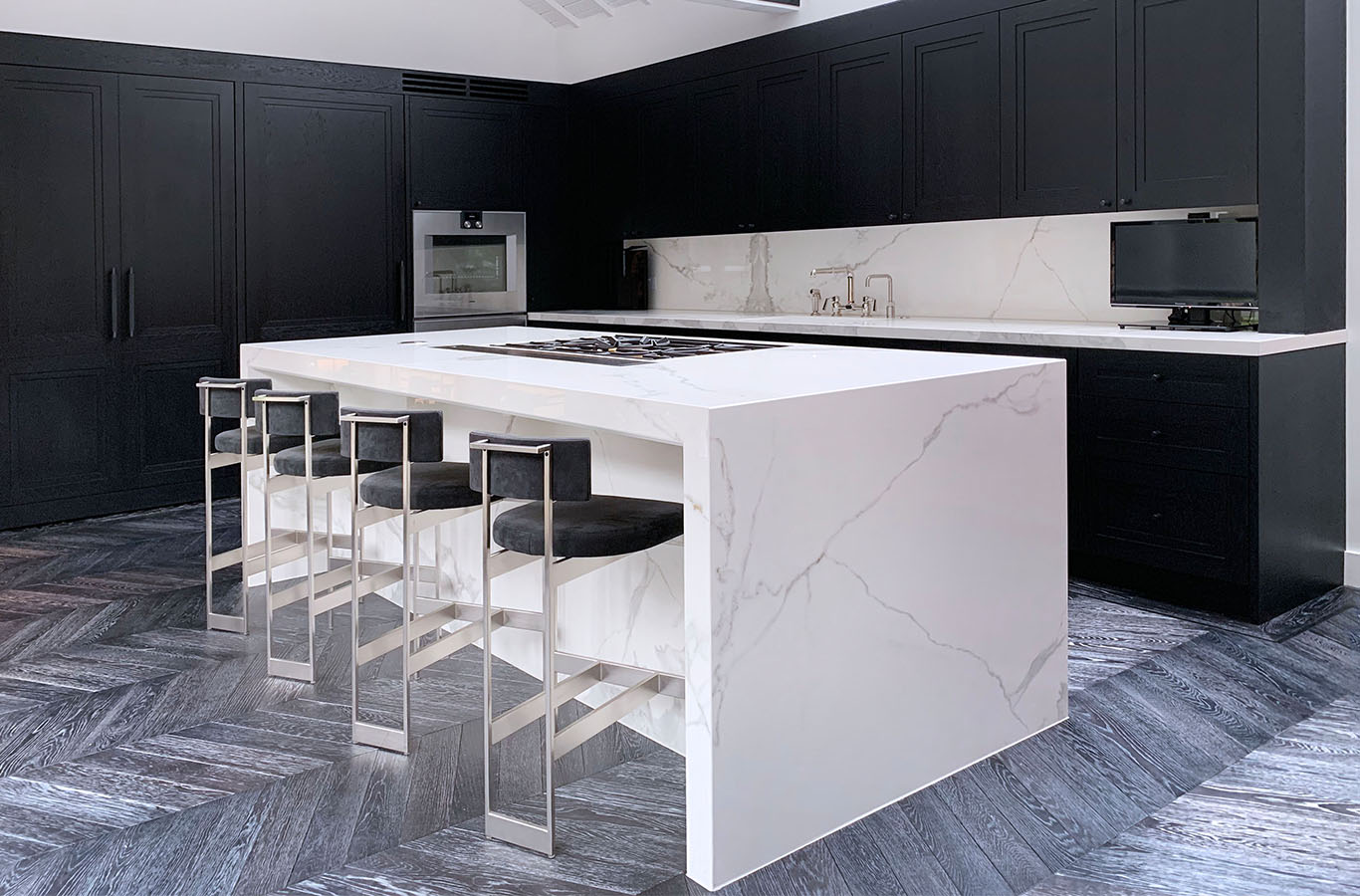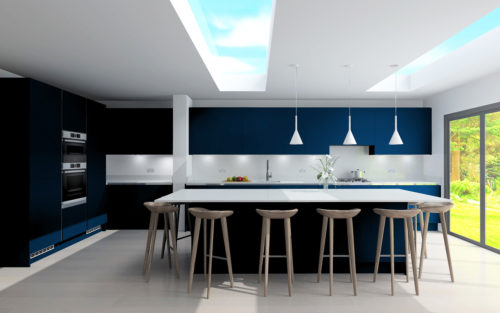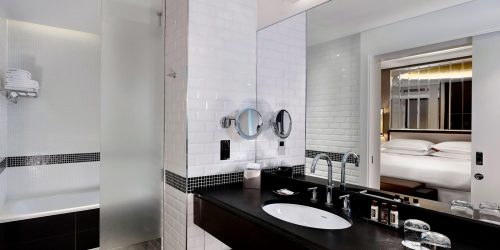There are a lot of options when it comes to choosing new worktops for your kitchen, whether you are completely re-designing the kitchen or just changing things around. One of the things that will make a big difference is, indeed, the worktop, because they take up a lot of space and are in a horizontal plane, so they certainly do stand out.
Many people today choose one of the natural stones that we provide at Marble & Granite for kitchen worktops, because every slab is unique in colour, markings, and patterns, and they are also sustainable, whereas engineered materials have a production process which often includes toxic chemicals and harmful emissions into the atmosphere. Of all the natural stones, one of the most popular is, without doubt, granite, because it is an extremely hard stone and will last for ages. As far as sustainability goes, a single quarry can produce granite for domestic and commercial purposes for hundreds of years.
Granite is very unlikely to suffer from scratches, which is good if you are sliding pots and pans about on it. However, when cutting or chopping foods you should use a chopping board because you are likely to damage the knife and blunt it. Granite is also heat resistant. You can place hot pans on it and it is unlikely to suffer any damage. However, best practice says that you should use a trivet with any worktop.
Granite slabs will vary in size, because they are cut from natural stone, but typical granite worktops in Knightsbridge will have two or three seams. This is especially the case if you have an L-shaped or U-shaped layout. In addition, you cannot have a coved backsplash in granite, so if you want a backsplash, a separate piece of granite will need to be fitted to the worktop using an adhesive. However, any seams can be disguised using a coloured epoxy resin at the joins which does a pretty good job of hiding them.
Despite how hard it is, granite is actually a porous stone, so if liquids are left on the surface for a long period, they will eventually be absorbed. However, they will also evaporate. In general, the darker granites are very dense and sometimes may not even need a sealer. Granite worktops are also resistant to acids such as vinegar, but repeated spills may cause a sealer to wash away over time.
To be on the safe side, and to be certain to avoid any staining, it is best to have granite worktops sealed with a quality sealant. A good quality one will last for several years. Re-sealing is not a difficult job either, because you just brush it on and wipe off any excess.
If you have an undermounted sink in mind, this is a good choice because any crumbs or spills can be wiped direct into the sink without catching on the lip of a surface mounted sink. You can use pretty well any type of sink – cast iron, stainless steel, solid surface – and we will cut and polish the sink hole to match the size of your sink. We will also cut holes for the taps, of course.
It is rare to get chips in a granite worktop, but it can happen. This is usually around the edges of the sink where pots and pans can catch on them. You just need to be careful, especially when using heavy pans such as cast iron frying pans and saucepans. However, a more likely occurrence is suffering from broken dishes or plates. If your granite worktop does get chipped, we can usually fix it using a colour matched epoxy resin which will make it virtually invisible.
As with all natural stones, the colours available are limited to what Mother Nature decides. It is a good idea to come to our works in Hatfield and select the exact slabs that you want us to use. Another point is that many granites have huge flowing waves in them, so a small sample may not be representative of the appearance of the whole slab.
While granites overall are thought of as expensive, this is not always the case. A lower range granite may well be less expensive than a high range laminate, and you get all the beauty and benefits of granite to boot.



